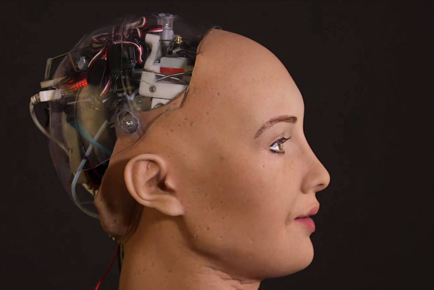
SingularityNET — an ambitious project to create a decentralized marketplace for AI — has raised a lot of money in its token sale. In around 60 seconds after opening the sale to the public, it sold out of the whole amount of available tokens (the AGI token), bringing the total raised to $36 million.
However, in this day and age, a startup raising a lot of money in an ICO is not really of interest, at least to many. This is part and parcel of the crazy, unregulated, crypto world these days. But what is interesting is what SingularityNET actually plans to become.
Dr. Ben Goertzel, the CEO
and founder, has a grand vision.
SingularityNET brings AI and blockchain together to create a decentralized open market for AIs. The implications are that it could let anyone monetize AI, allowing companies, organizations, and developers to buy and sell AI algorithms at scale, thus lowering costs and increasing the capabilities of the AIs. Eventually, the plan is to plug Hanson Robots’ “Sophia” robot literally into SingularityNET’s network in order to power its brain. If this sounds like a Sci-Fi movie, that’s because a lot of Sci-Fi has exactly this plot line.
In an interview, I asked him how it will all work:
“Proprietary marketplaces exist, like the Amazon Web Services for instance. What we’re creating here is a decentralized marketplace, more like BitTorrent. There’s no central dictator deciding what gets in there. Anyone can put an AI online, wrap it in our API, announce it to the network and any business that needs AI as a service can request it.
“Then you need a good reputation system to grade the best AIs with a high rating. We need blockchain to let us do this in a peer to peer, decentralized way. P2P software that is reliable and not easily hackable and involves payment, but it would still need a distributed ledger. BitTorrent doesn’t involve payment or Identity management or high security, which is why we are doing this on blockchain.
“AI processing is compute time sensitive. So we chose the OpenCog platform, which plays two roles. One is that it’s one of the many AI tools that we will use to build some initial AI services in the network, just the way Apple also sells its own apps. We will put some cool tools in there. The other role is closer to the infrastructure.
“We want to make the system so that the AI layer is independent of what blockchain we are using. Our prototype uses Ethereum, but this is too slow. So we want to be able to swap out the blockchain technology easily. So, the smart contracts need to be expressed in an abstract way which is independent of the blockchain we are using. And OpenCog’s logical language works well for this.
“If an AI in the marketplace is not useful it will get a lower rating. But in this sort of market something doesn’t have to be useful to everyone. So for instance, you could have an algorithm that was only useful to coffee farmers in Africa. I mean, Amazon Cloud doesn’t offer that because coffee farmers are not high on many of its lists to address. But it could still be valuable to some people. Like coffee farmers!
“It’s like having Elance, but the AI is doing a service, not a person.
Could it be scalable? AI algos aren’t invented in big tech companies anyway, they are invented by academics and students. So if you have a way for the inventors to wrap their algorithms in a decent API, then you allow the creators to benefit, rather than them having to create a startup and sell it to a big company.